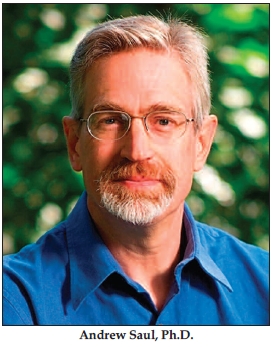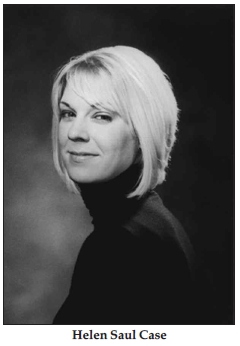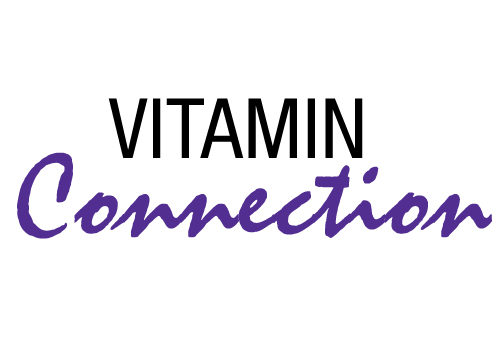There is widespread agreement that most people will benefit from consuming more fruits and vegetables because they are not eating enough for one reason or another. I hope readers of this column do exceptionally well in vegetable and fruit consumption, but some may have room for improvement or friends and family who need some help.
Juicing is a convenient and tasty way for many people to improve. Nothing new there, so why am I making this the subject of this month’s column? Basically, I was looking to call attention to the health benefits of beet juice for both athletes and those with high blood pressure, when I discovered that our friend Andrew W. Saul, Ph.D., and his daughter Helen Saul Case have a new book on juicing. Great timing! So, let’s discuss the benefits of juicing and a little about the health benefits of beet juice.
Regular readers know that both authors have chatted with us previously.
Dr. Saul was known as “The Juicer” when he taught clinical nutrition at New York Chiropractic College and postgraduate continuing education programs. He was also on the faculty of the State University of New York for nine years. Two of those years were spent teaching for the university in both women’s and men’s penitentiaries (no, not as an inmate). He also taught every grade there is in the Rochester-area parochial and public schools. Dr. Saul is the author or coauthor of a dozen books, including Doctor Yourself: Natural Healing that Works and Fire Your Doctor! He has published over 180 papers in peer-reviewed publications. Dr. Saul is internationally known for his Web site www.doctoryourself.com and his featured appearance in the very popular documentary movie Food Matters.
Helen Saul Case, daughter of Dr. Saul, is the author of The Vitamin Cure for Women’s Health Problems and has published work in the Journal of Orthomolecular Medicine. She graduated magna cum laude from Colgate University and then earned a master’s degree in education from the State University of New York. She taught English for nine years, is a certified administrator and worked as English department chair for four years. She currently lives and juices vegetables with her husband and children in western New York.
Now, let’s discuss the benefits of juicing with Dr. Saul.
Passwater: Why a new book on juicing? What is different about your new book than other juicing books?
Saul: Ours is fun to read. There are a lot of very good juicing books. But the only one with humorous, off-the-wall attitude is our Vegetable Juicing for Everyone. Both authors have taught junior high, and you can blame those surrealistic years for some of the book’s point of view. When you actually relish working with adolescent kids with attitude, it sort of rubs off. We have stories and tales and experiences to share about juicing at all ages and stages, from the oddities of our childhood to our oddities as parents. There is something in this book to embarrass nearly everyone in our extended family, including ourselves. Ah, but that is what great literature is all about!
Passwater: Charlotte Gerson, daughter of Max Gerson, M.D., is perhaps the world’s foremost therapeutic juicing expert. What interested her enough to write the foreword to your book?
Saul: Perhaps this is best answered in her own words:
“Much has been written about nutrition and juicing, so Dr. Saul decided to write something different. He has recorded a family saga that at times makes you laugh out loud. How much do we love our children? Enough to make them work hard hours, fighting off frogs and mice in an overgrown vegetable garden, and then drink the juices from their own organic produce? Enough to resist their complaints? Enough to turn our backs on a totally unhealthy upbringing and start a relentless campaign to save them from antibiotics, vaccinations, pharmaceuticals, and chronic disease? The Saul youngsters grew to college age without ever taking antibiotics and into maturity sharing their parents’ values and valuing their sharing. Much of the charm of Dr. Saul’s story is in the humorous recollections provided by his daughter and co-author Helen Saul Case. Affectionately recalling her rebellious childhood, handled with creative blackmail and rewards by her wise and determined parents, she describes how “the system worked”; since she continues the family tradition of juicing and teaching nutrition to her own children. If all parents were able to benefit from the advice in this book, and were to make a habit of growing or purchasing a wide variety of organic vegetables to eat and juice daily, they could do much to avoid the terrible health problems that afflict children today.”
Passwater: Isn’t it a misconception that juicing is just for “health nuts?” Can’t everyone benefit?
Saul: The answer is in the title: everyone can benefit. Vegetable Juicing for Everyone is especially for the very people that would not be caught within half a mile of a juicer. Those are the folks who need it the most. We think that thick, detailed, pontifical books on the medical benefits and biochemistry of juices have their place. But too often, that place is a dusty corner of an old bookshelf.
So, we wrote a truly unique book. It is filled with funny and occasionally bizarre stories of our being the health misfits of the neighborhood. Some chapters include, “Confessions of the Dad Who Made His Kids Drink Vegetable Juices”; “Well, It’s Certainly Not Genetic”; “Carrot Juice Kids”; and “Juicing Excuses.” It is entertaining, and it is motivating.
Passwater: Why juice? What do you gain specifically from juicing?
Saul: The list is nearly endless. Vegetable juice therapy has been successfully used to halt and even reverse cancer for over 70 years. Juicing is an effective way to lower high blood pressure, and absolutely the best way to lose weight. The two often go together. Once, when I had high blood pressure, I lost 30 pounds and the hypertension went away. Vegetable juices are the perfect diet food. They are a superior way to treat skin conditions. There is no better therapy for gastrointestinal problems than cabbage juice. Yes, cabbage juice. We tell you why, cite the research, and show you how to do this and more. We also discuss juicing for the elderly, as well as for babies, teenagers and, well, literally everyone.
 Passwater: Juicing for babies? Preschoolers?
Passwater: Juicing for babies? Preschoolers?
Saul: You bet. If Mom is drinking veggie juices, so too is her nursing baby. When the baby is ready for other foods, it’s juice time! Remember, this is not a beverage; it is not an appetite-stealing sugary drink. Vegetable juices are a food. They are nutrient-dense and very digestible. My daughter and coauthor started drinking fresh raw veggie juice out of a sippy cup at nine months. At two years of age, she helped us juice. By that, we mean that with supervision, she sent the vegetables through the juicer. Toddlers like to imitate and help. Let them.
Passwater: How does one get other people interested in juicing?
Saul: Necessity is the mother of juicing. If people are sick and no longer want to be sick, they juice. If they want healthy kids, they start the children on juicing early. My daughter and coauthor was raised with a bright orange “carrot moustache.” That’s how much carrot juice she and her brother drank, even as preschoolers. That may be cute, but here is the important part: they also never had a single dose of any antibiotic. Not one, not ever. They had pediatricians that they never met. Our family’s physicians were in a group practice. Doctors came and went and we never met them. We just received postcards announcing who was new and who had retired. Now THAT’S what sparks interest in juicing!
Passwater: What about the variety of juicers on the market today? Which juicers are best?
Saul: Any juicer that you will use every day is the best juicer for you. Yes, we discuss the various types of juicers and their benefits. However, unlike many juicing books (and so very many infomercials!), we have no financial connection whatsoever with any company in the health products industry. We do not market our own juicers, nor do we market anyone else’s. We do not make a dime from the sale of juicers, or vitamins, or foods. Or garden seed. Or shovels. We personally prefer books without product endorsements, and endeavor to offer our readers the same courtesy.
Passwater: What does the rest of your family think about all this?
Saul: Helen’s husband is even more into this juicing thing than I am, and that’s saying something. He juices every edible plant you can quickly think of. Quite frankly, the rest of his family thinks we’re a little crazy. Maybe more than a little. That’s fine: he and I are really together on this, and we have the healthy kids to prove it.
Passwater: What are the differences between the juice obtained by “juicing” and the stuff sold as vegetable or fruit “juice?”
Saul: There are several differences. The biggest is, taste! Fresh tastes better. Canned juice is pretty blah by comparison. The next difference is heat. Most packaged juices have been heat treated. Canning uses a lot of heat; pasteurization uses less heat, but is still pretty hot. Frozen vegetable products are either partly cooked, or blanched, so they do not discolor with time in the freezer. Juicing your own vegetables is a very low-heat operation. Almost all juicers create some friction heat, but it is nothing compared to industrial food processing temperatures.
Doing it yourself (or watching someone else juice for you, and then guzzling it right down!) is the only way to get fresh, raw vegetable extract. That’s what juice is, and that’s why it is so good for you.
Fruit simply does not need juicing, as most fruits are already full of moisture, easy to chew and sweet enough for people to want to eat them whole. Fruit is good, but vegetables are better: they are not as sweet and more nutrient-dense. We recommend adding some fruit to vegetable juices for taste, especially when you are introducing juicing to newcomers. Cabbage juice and other green juices (such as kale and lettuce) taste a lot better with fruit in the mix. The trick is to juice often and actually drink it. Whatever gets people to down more veggies is fine with us.
Passwater: The health benefits of beet juice are very much in the news these days. A glass of beet juice can lower high blood pressure by four to five points (systolic) within an hour. However, the greatest interest recently has been in athletes. Athletes are aware that several research articles have discussed the performance enhancement of beet juice due to its ability to increase nitric oxide (NO) levels in the blood, which improves blood flow and endurance.
What is your favorite recipe to use for beet juice or do you prefer to use pure beets?
Saul: Straight raw beet juice is pretty strong, so a beet and carrot blend is my favorite. Add in some fruit if you prefer. Any way you can get it down is the right recipe because beets are so beneficial. Vegetable  Juicing for Everyone has a lot of emphasis on the healing value of beets, how to prepare them, grow them, juice them and more. We provide a full discussion of oxalate metabolism and reducing the kidney stone risk that has commonly, and incorrectly, been attributed to beets. We also have more really corny beet puns than any other juicing book.
Juicing for Everyone has a lot of emphasis on the healing value of beets, how to prepare them, grow them, juice them and more. We provide a full discussion of oxalate metabolism and reducing the kidney stone risk that has commonly, and incorrectly, been attributed to beets. We also have more really corny beet puns than any other juicing book.
Passwater: Dr. Saul, thank you once again for another great book and for taking the time to chat with us about the benefits of juicing. WF
Dr. Richard Passwater is the author of more than 40 books and 500 articles on nutrition. Dr. Passwater has been WholeFoods Magazine’s science editor and author of this column since 1984. More information is available on his Web site, www.drpasswater.com.
Published in WholeFoods Magazine, July 2013










